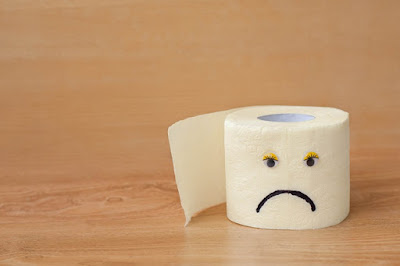Can Laxatives Help You Lose Weight
Photo Credit: Pixabay
Laxatives Could Help You Lose Water Weight. ... It is true that laxatives may help increase weight loss, but the results are only temporary. Several types of laxatives work by pulling water from your body into the intestines, allowing stool to absorb more water for an easier passage.
Source: Laxatives for Weight Loss: Do They Work and Are They Safe?
How can I lose weight fast?
Here are 10 more tips to lose weight even faster:
- Eat a high-protein breakfast. ...
- Avoid sugary drinks and fruit juice. ...
- Drink water a half hour before meals. ...
- Choose weight loss-friendly foods (see list). ...
- Eat soluble fiber. ...
- Drink coffee or tea. ...
- Eat mostly whole, unprocessed foods. ...
- Eat your food slowly.
Why should laxatives only be used when recommended?
Laxatives may help prevent constipation caused by some drugs or prevent straining to have a bowel movement, which might be dangerous for some people. ... Long-term use of laxatives, except for bulk laxatives, can make you dependent on laxatives to go to the bathroom and may mask important constipation symptoms.
Source: All About Laxatives | Everyday Health
How long do the effects of laxatives last?
They may take up to 2-3 days before they start to work. Stimulant laxatives - these stimulate the digestive tract walls, speeding up bowel movements. Usually, they take effect within 6-12 hours. Stool softener laxatives - these decrease the surface tension of stools so that they absorb more water, making them softer.
Source: Laxatives for constipation: Types, side effects, and misuse
How many times a day can you take lactulose?
Initial dose is usually 2 tablespoons (30 ml) taken 2-3 times a day. This dose may be increased to 3-4 times a day so that you produce 2-4 soft bowel movements daily. The dosage is based on your medical condition and your response to therapy. Your doctor will tell you exactly how much to take and how often.
Source: Lactulose Side Effects | Hepatic Encephalopathy | Liver Foundation
What is the best laxative that works fast?
Stimulant laxatives are the fastest-acting, such as include aloe, cascara (Nature's Remedy), senna compounds (Ex-Lax, Senokot), bisacodyl (Dulcolax, Correctol), and castor oil. Saline laxatives or enemas such as Fleet Phospho-Soda, milk of magnesia, and magnesium citrate.
Source: 7 Types of Laxatives for Constipation Relief, and Side Effects
What are the side effects of taking too many laxatives?
Taking too many laxatives overtime may weaken the bowel muscles, further leading to constipation. Contact a doctor after taking laxatives if you experience symptoms including dry mouth, thirst, reduced urine output and lightheadedness, especially with changes in position, after taking these laxatives.
Source: FDA warns exceeding laxative dose may be deadly for some - CBS
What do laxatives do to the body?
Although laxatives artificially stimulate the large intestine to empty, the “weight loss” caused by a laxative-induced bowel movement contains little actual food, fat, or calories. Instead, laxative abuse causes the loss of water, minerals, electrolytes and indigestible fiber and wastes from the colon.
Source: Laxative Abuse: Some Basic Facts | National Eating Disorders
Is it safe to take laxatives?
Laxatives can help relieve and prevent constipation. But not all laxatives are safe for long-term use. Overuse of certain laxatives can lead to dependency and decreased bowel function. ... Many safe, effective over-the-counter laxatives are available to treat occasional constipation in a variety of ways.
Source: Over-the-counter laxatives for constipation: Use with caution - Mayo
Do laxatives make you have diarrhea?
Nearly all medicines may cause diarrhea as a side effect. The drugs listed below, however, are more likely to cause diarrhea. They work either by drawing water into the gut or by causing the muscles of the intestines to contract. However, taking too much of a laxative can cause diarrhea that is a problem.
Source: Drug-induced diarrhea: MedlinePlus Medical Encyclopedia
Do laxatives cause gas and bloating?
Bloating is one of these side effects. According to Barnard College, when you take a laxative, it diminishes water supplies in your body, causing dehydration. ... Aside from bloating, laxative use may also result in abdominal cramping, gas, increased thirst and in some cases, diarrhea.
Source: Do Laxatives Make You Bloated?
Do laxatives help with constipation?
Laxatives contain chemicals that help increase stool motility, bulk, and frequency -- thus relieving temporary constipation. But when misused or overused, they can cause problems, including chronic constipation. ... Still, 85% of doctor visits for constipation result in a prescription for a laxative.
Source: Laxatives for Constipation: Treatments, Use, Safety - WebMD
Are chia seeds a natural laxative?
One of the benefits of chia seeds is its ability to work as a natural laxative. Chia seeds combined with liquid form a gelatinous substance that easily moves through your intestines. As a great way to increase the fiber in your diet, chia seeds swell and expand in the digestive tract, absorbing water.
Source: Natural Laxatives: 7 Best Foods to Stay Regular - Dr. Axe
How long should it take for a laxative to work?
Saline (magnesium citrate solution) laxatives work a little more quickly, taking 30 minutes to six hours. Regardless of which type of laxative you use, rectal enemas and suppositories usually work the fastest. They usually take two to 15 minutes, but in some cases have taken up to an hour to work.
Source: Stool Softeners vs. Laxatives - Healthline
Can you overdose on a laxative?
A laxative is a medicine used to produce bowel movements. Laxative overdose occurs when someone takes more than the normal or recommended amount of this medicine. ... Most laxative overdoses in children are accidental. However, some people regularly take overdoses of laxatives to try to lose weight.
Source: Laxative overdose: MedlinePlus Medical Encyclopedia
What is laxative used for?
They are used to treat and/or prevent constipation. Laxatives vary as to how they work and the side effects they may have. Certain stimulant, lubricant and saline laxatives are used to evacuate the colon for rectal and bowel examinations, and may be supplemented by enemas under certain circumstances.
Source: Laxative - Wikipedia
What is the difference between a laxative and a stool softener?
Stool softeners prevent or treat constipation by making the stools less hard. They do not directly cause bowel movements. Because of this, most stool softeners take one to three days to be effective. By contrast, stimulant laxatives, such as Cascara, bisacodyl, and castor oil, act by directly producing bowel movements.
Source: What is the difference between stool softeners and stimulant laxatives
Is coffee a laxative?
It's tempting to attribute the effect to caffeine, since that's the ingredient you're going after when you slurp down a cup of coffee. But think about it: Soda doesn't have the same effect. And studies have found that decaf coffee (which some people drink for some reason, I guess) can have a laxative effect, too.
Source: Here's why coffee makes you poop - The Washington Post
How long do the effects of laxatives last?
They may take up to 2-3 days before they start to work. Stimulant laxatives - these stimulate the digestive tract walls, speeding up bowel movements. Usually, they take effect within 6-12 hours. Stool softener laxatives - these decrease the surface tension of stools so that they absorb more water, making them softer.
Source: Laxatives for constipation: Types, side effects, and misuse
Why do laxatives make you poop?
A common example of a stimulant laxative is bisacodyl (Dulcolax and Correctol). Other constipation remedies. Stool softeners and lubricant laxatives are also helpful because they make dry, hard stools easier to pass. Mineral oil can be used as a lubricant laxative, as can a glycerin suppository.
Source: All About Laxatives | Everyday Health
What is the best laxative that works fast?
Stimulant laxatives are the fastest-acting, such as include aloe, cascara (Nature's Remedy), senna compounds (Ex-Lax, Senokot), bisacodyl (Dulcolax, Correctol), and castor oil. Saline laxatives or enemas such as Fleet Phospho-Soda, milk of magnesia, and magnesium citrate.
Source: 7 Types of Laxatives for Constipation Relief, and Side Effects
Can you die from taking laxatives?
The agency has received 54 reports of side effects, including 13 deaths, linked to over-the-counter sodium phosphate laxatives. Serious side effects include dehydration and/or abnormal levels of electrolytes in the blood that can lead to serious complications, including kidney damage and sometimes death.
Source: FDA warns exceeding laxative dose may be deadly for some - CBS ...
Do laxatives make you lose weight?
But please know, they not only do nothing for your weight, but they will cause severe internal damage. Stop the laxatives and instead opt for a natural way to lose weight: drink lots of water, exercise, eat prunes if you need that extra kick to get things moving..
Source: The Problem of Living on Laxatives to Lose Weight - Spoon University
You Might Be Interested in: Laxatives for Weight Loss












